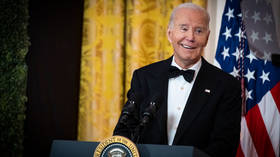One afternoon in September, parents started arriving for pickup at Title of Liberty Academy, a private Mormon K-8 school in Mesa, Arizona, on the eastern outskirts of Phoenix. Individually, the moms and dads were called in to speak to the principal. That’s when they were told that the school, still just a few months old, was closing due to financial problems.
There would be no more school at Title of Liberty.
Over the course of that week, more parents were given the news, as well as their options for the remainder of the school year: They could transfer their children to another private or charter school, or they could put them in a micro-school that the principal said she’d soon be setting up in her living room. Or there was always homeschooling. Or even public school. These families had, until this moment, embodied Arizona’s “school choice” ideal.
- Many of them had been disappointed by their local public schools, which some felt were indoctrinating kids in subjects like race and sex and, of course, were lacking in religious instruction.
- So they’d shopped for other educational options on the free market, eventually leading them to Title of Liberty.
One mom had even discovered the school by window shopping: It was in the same strip mall as her orthodontist’s office, next to a China Palace, and she’d noticed the flags outside with Church of Jesus Christ of Latter-day Saints imagery. (The school was not formally affiliated with the church.)An LDS member herself, she was soon ready to start paying tuition to the school from her son’s Empowerment Scholarship Account — a type of school voucher pioneered in Arizona and now spreading in various forms to more than a dozen other states.
- ESAs give parents an average of over $7,000 a year in taxpayer funds, per child, to spend on any private school, tutoring service or other educational expense of their choice.
Yet Arizona’s ESA program provides zero transparency as to private schools’ financial sustainability or academic performance to help parents make informed school choices.
For instance, the state never informed parents who were new to Title of Liberty and were planning to spend their voucher money there that it had previously been a charter school called ARCHES Academy — which had had its charter revoked last school year due to severe financial issues. Nor that, as a charter, it had a record of dismal academic performance, with just 13% of its students proficient in English and 0% in math in 2023.
- When it was a charter (which is a type of public school), these things could be known. There was some oversight. The Arizona State Board for Charter Schools had monitored the school’s finances and academics, unanimously coming to the conclusion that it should be shut down.
- Yet just a month after the board’s decision, ARCHES was re-creating itself as a renamed, newly religious private school, simply by pivoting to accept voucher dollars.
In other words, it was closed down by a public governing body but found a way to keep existing and being funded by the public anyway, just without the standards and accountability that would normally come with taxpayer money.Arizona does no vetting of new voucher schools. Not even if the school or the online school “provider” has already failed, or was founded yesterday, or is operating out of a strip mall or a living room or a garage, or offers just a half hour of instruction per morning. (If you’re an individual tutor in Arizona, all you need in order to register to start accepting voucher cash is a high school diploma.)
There is “nothing” required, said Michelle Edwards, the founder and principal of ARCHES and then of Title of Liberty, in an interview with ProPublica. It was “shocking how little oversight” the state was going to provide of her ESA-funded private school, Edwards said. . .
“If you’re gonna call yourself a school,” Edwards told ProPublica, “there should be at least some reporting that has to be done about your numbers, about how you’re achieving. … You love the freedom of it, but it was scary.”
This school year, ProPublica has been examining Arizona’s first-of-its-kind “universal” education savings account program. We are doing so both because other states have been modeling their own new ESA initiatives after this one, and also because President-elect Donald Trump has prioritized the issue, most recently by nominating for secretary of education someone whose top priority appears to be expanding school choice efforts nationwide. (And Betsy DeVos, his first education secretary, was and remains a leading school voucher proponent.)
These programs are where the U.S. education system is headed. But the lack of any transparency or accountability measures in Arizona’s ESA model is perhaps the most important issue for other states to consider as they follow this one’s path, even some school choice supporters say.
Edwards, the Title of Liberty founder, first had the idea for her own school more than a decade ago. She’d long been an educator; she even ran a tutoring business in high school, she told me. At the beginning of her career, she taught Head Start and kindergarten in public and charter schools.
Through that experience and also seeing her own six kids not always having their individual needs met in Arizona’s K-12 system, she came to the conclusion that “to try to teach every child the same is ridiculous.”This last comment was part of a larger move that Edwards’ school was making: not just from charter to private and from some public accountability to none, but also from secular to religious with a right-wing bent, which was fully allowed even though it would be bankrolled by taxpayers.
So, where ARCHES had touted an “American Revolutionary Classical Holistic Educational System,” Title of Liberty would simply be a “private faith-based school focused on the values of The Church of Jesus Christ of Latter-day Saints.”
[ }
“It all depends on how you define success,” Edwards told me. “I feel like the time that our kids had with us was valuable and they learned a lot and took a lot with them from that.”
“We did try to hold to a super high standard,” she added, noting that there’s no one at the state level checking on all the other private schools out there that might not care to meet that standard.
Calls for school transparency and accountability used to be a feature of the center-right education reform movement.
- No Child Left Behind, one of President George W. Bush’s signature legislative achievements, mandated that public school students in certain grades undergo standardized testing in core subjects, on the grounds that schools should have to prove that they’re educating kids up to state standards and, if they’re not, to improve or else risk losing funding.
- That testing was often rote, providing incomplete information as to the varied lives of students and pressuring many teachers to “teach to the test,” critics alleged. But it did offer a window into school performance — which, in turn, gave the voucher movement ammunition to criticize failing public schools.
Still, early voucher efforts too included basic transparency and accountability measures. When vouchers were first proposed in Arizona, for instance, a state task force said that “private schools must also participate in the same accountability process as public schools in order to qualify for state funding.” Louisiana’s voucher program, similarly, required participating private schools to administer state student achievement tests just like public schools did.
But voucher advocates changed course between 2017 and 2020. By that time, several academic studies had found that larger voucher programs had produced severe declines in student performance, especially in math.
- Asked about a set of particularly negative findings out of Louisiana, DeVos, Trump’s secretary of education, blamed the state’s voucher program for being “not very well conceived.” Part of the problem was that it was overregulated, she and other advocates said.
In the years since, fully unregulated universal ESA programs have become the favored program design of many school choice supporters.
In other words, it’s not that this newer ESA model has been a clear academic success or failure. It’s just that the public, and more specifically parents, can’t know.
Not all states keep information as hidden as Arizona. At least five, for example, require schools that accept voucher money to be accredited or to provide evidence that they don’t have financial troubles.
Yet even these minimal efforts at transparency and accountability have been opposed by big-money voucher supporters.
. . . in Arizona, Republicans in the Legislature have opposed every effort by Democratic Gov. Katie Hobbs to increase oversight of private schools that receive ESA money — except for one reform: They decided that such schools must fingerprint their teachers. But the new law doesn’t require the ESA schools to run those fingerprints through any database or to use them in any way.
What I found inside was a scene of school choice in its endstage. A sort of zombie voucher school, with dozens or possibly hundreds of books and papers scattered across the floor. Student records, containing confidential information, had been left out. There was food in the cafeteria area, molding.
Under quotes from the Book of Mormon painted on the walls and a banner proclaiming that Title of Liberty would strive to be a “celestial stronghold of learing [sic],” a document was sitting on a table. It offered guidance for parents on how to select the right school for their little ones, including this line: “You might be surprised how many schools are just flying by the seat of their pants.”
And on top of a file cabinet next to that was a stack of postcard-sized flyers that had been printed off at Walmart, reading, “Sign up your student for ESA.”






